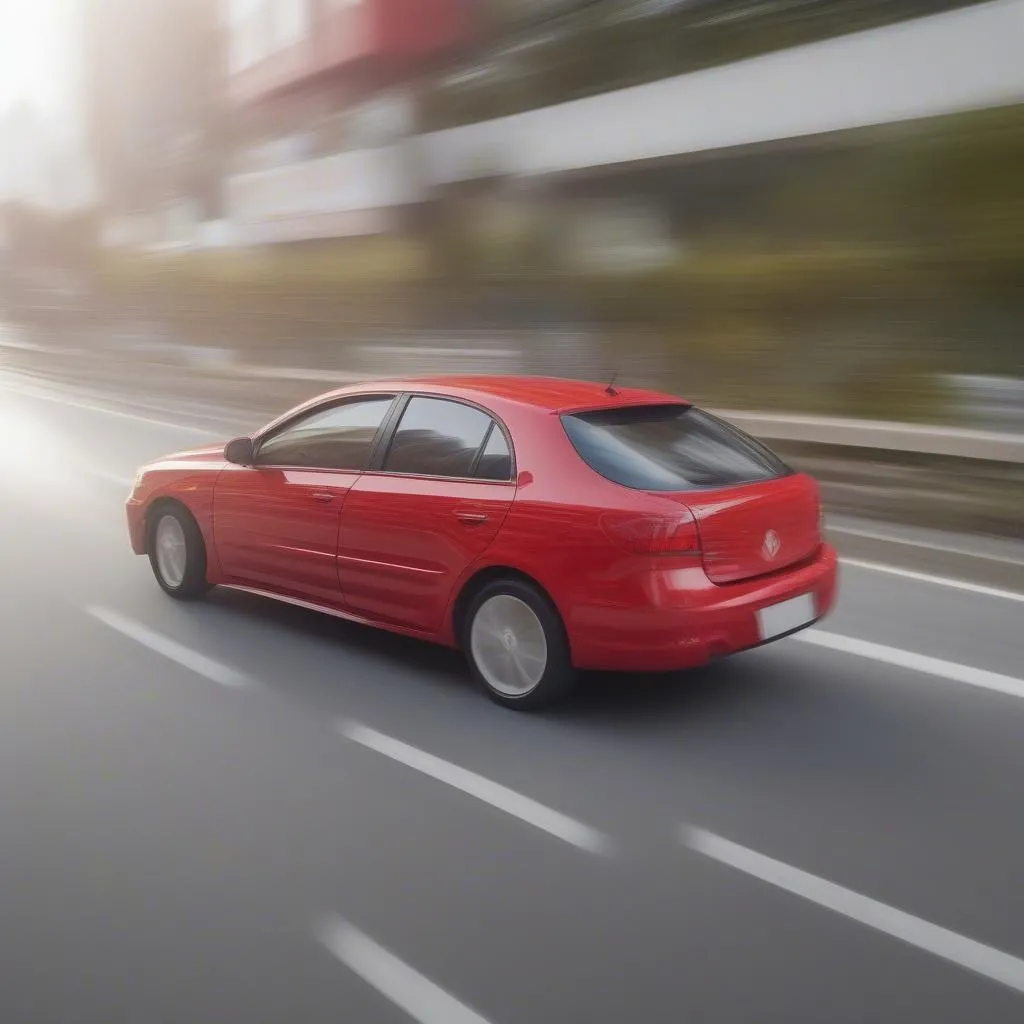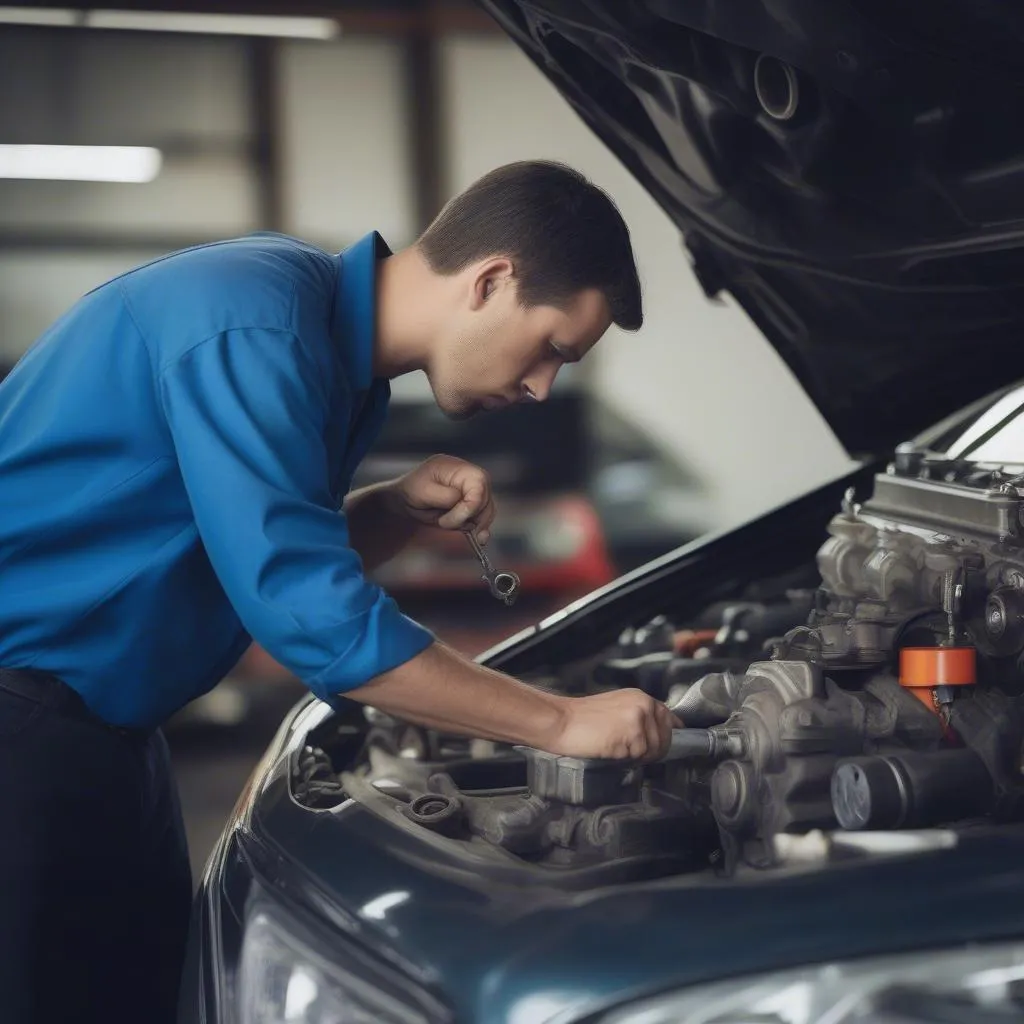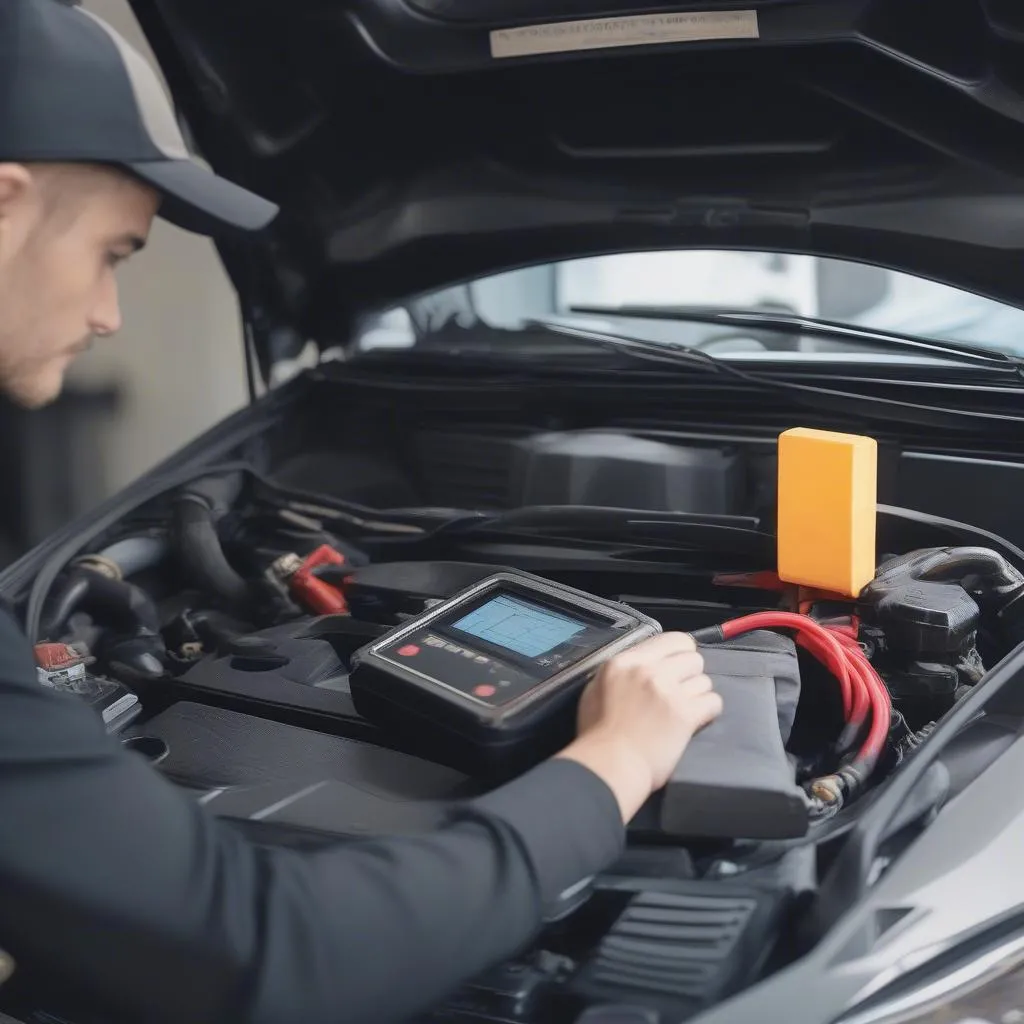Have you ever been driving down the road and felt a sudden jolt or shake as you accelerate? It’s a scary experience, and it can be frustrating trying to figure out what’s wrong with your car. The good news is that a car shaking when accelerating is usually a sign of a common problem that can often be easily diagnosed and fixed.
Understanding the Problem: Why Does My Car Shake When Accelerating?
Imagine this: You’re pulling out of a parking lot, hitting the gas pedal, and suddenly your car starts to vibrate or shake. It’s a jarring experience that can make you feel uneasy. Why does this happen?
From an automotive technician’s perspective, a car shaking when accelerating often points to issues related to the engine’s power delivery, transmission, or suspension.
From a technical standpoint, the shaking is caused by irregular or uneven engine power, which can be a result of several factors, including:
- Ignition System Issues: Malfunctioning spark plugs, ignition wires, or the distributor can lead to inconsistent combustion, causing the car to shake.
- Fuel System Issues: A dirty fuel filter, clogged injectors, or low fuel pressure can disrupt the fuel delivery system, resulting in uneven fuel distribution to the cylinders.
- Engine Mounts: Worn out engine mounts allow the engine to move excessively, leading to vibrations that transmit through the car’s body.
- Transmission Issues: A slipping transmission, worn clutch plates, or transmission fluid problems can lead to inconsistent power transfer from the engine to the wheels, resulting in shaking.
- Suspension Problems: Worn out suspension components, such as struts, shocks, or control arms, can lead to the vehicle shaking when accelerating, especially at higher speeds.
- Wheel Balance: Unbalanced wheels can cause vibrations at certain speeds, including when accelerating.
- Tire Problems: Worn, damaged, or underinflated tires can lead to vibrations that worsen when accelerating.
- Driveshaft Issues: Problems with the driveshaft, like a worn or damaged universal joint, can lead to vibrations that can be felt during acceleration.
How to Diagnose and Fix the Problem:
1. Start with the Basics:
- Check Engine Light: If the Check Engine light is on, it’s a good starting point for diagnosis. Use a code reader to obtain the diagnostic trouble codes (DTCs) from the engine control unit (ECU).
- Visual Inspection: Inspect the engine bay, undercarriage, and tires for any visible signs of damage, leaks, or wear.
- Fluid Levels: Check the engine oil, transmission fluid, power steering fluid, and coolant levels.
2. Common Culprits:
- Spark Plugs: Worn or fouled spark plugs can cause misfires, leading to shaking. Replace spark plugs as per the manufacturer’s recommendations.
- Fuel Filter: A clogged fuel filter restricts fuel flow, impacting engine performance and causing shaking. Replace the fuel filter regularly, following the manufacturer’s guidelines.
- Engine Mounts: Inspect the engine mounts for cracks, tears, or excessive movement. Replace worn-out mounts as needed.
- Wheel Balance: Have your wheels balanced by a professional mechanic.
3. When to Seek Expert Help:
If basic checks don’t reveal the cause of the shaking, it’s time to consult with a qualified automotive technician. They can use specialized diagnostic tools, such as a dealer scanner for European cars, to delve deeper into the problem and perform the necessary repairs.
Common Questions About Car Shaking When Accelerating:
Q: My car only shakes when accelerating from a stop.
A: This could indicate a problem with the transmission, such as a slipping clutch or worn clutch plates. It could also point to issues with the engine mounts or a faulty torque converter.
Q: My car shakes when accelerating at high speeds.
A: This could point to issues with the tires, wheels, suspension, or drivetrain components. It’s crucial to inspect these areas carefully.
Q: My car shakes when accelerating and I feel a loss of power.
A: This suggests a more serious engine or transmission problem. It’s crucial to get the car checked by a mechanic as soon as possible.
Q: My car is shaking violently when accelerating. What should I do?
A: If your car is shaking violently, it’s best to stop driving immediately. This could be a sign of a severe problem that needs immediate attention.
Q: How much does it cost to fix a car that shakes when accelerating?
A: The cost of repairs depends on the underlying issue. A simple fix like replacing spark plugs might cost a few hundred dollars, while a more complex problem like a transmission issue could cost thousands.
Q: What are some preventative measures I can take to avoid this problem?
A:
- Regular Maintenance: Adhering to the manufacturer’s recommended maintenance schedule is crucial for preventing car shaking.
- Properly Inflated Tires: Regularly check and adjust your tire pressure to ensure proper inflation.
- Quality Fuel: Using high-quality fuel can help prevent engine and fuel system issues.
- Avoid Aggressive Driving: Aggressive acceleration and braking can put undue stress on engine and transmission components.
Need Help with Diagnosing and Fixing Your Car Shaking?
If you’re experiencing a car shaking when accelerating and need assistance, don’t hesitate to reach out to our team of automotive experts at Diag XCar. We offer 24/7 support and can help you diagnose and resolve the issue quickly and efficiently.
Contact us via Whatsapp: +84767531508
Other Resources:
- My Car Shakes When I Stop: https://diagxcar.com/my-car-shakes-when-i-stop/
- Why Does My Truck Shake When Accelerating?: https://diagxcar.com/why-does-my-truck-shake-when-accelerating/
- Car Making Vibrating Noise: https://diagxcar.com/car-making-vibrating-noise/
- Why Does My Car Shake?: https://diagxcar.com/why-does-my-car-shake/
- Front End of Car Shakes When Accelerating: https://diagxcar.com/front-end-of-car-shakes-when-accelerating/
Let us know in the comments below if you’ve experienced a car shaking when accelerating! We’d love to hear your story and offer any assistance we can.
 car shaking
car shaking
 mechanic
mechanic
 diagnostics
diagnostics


